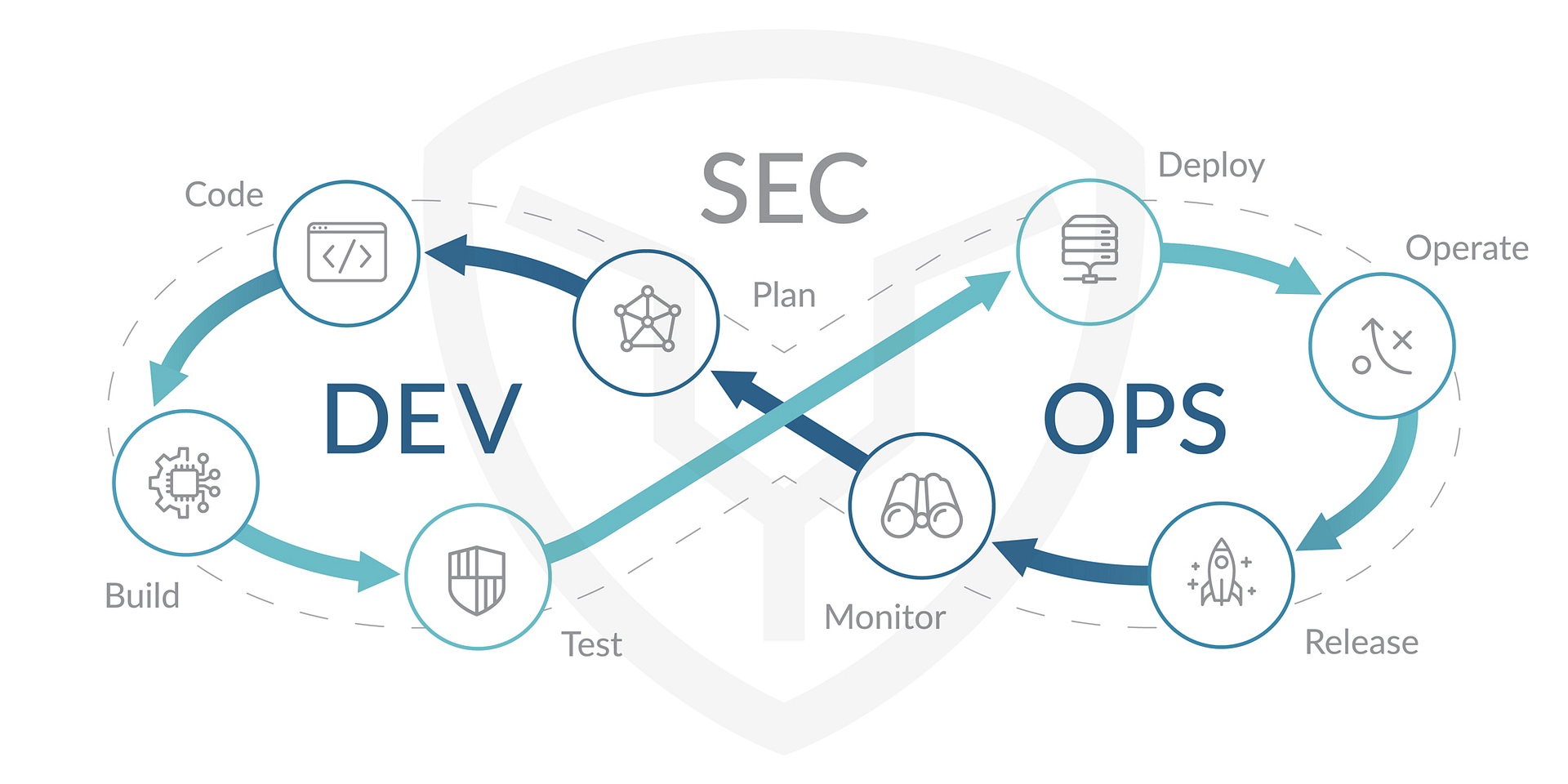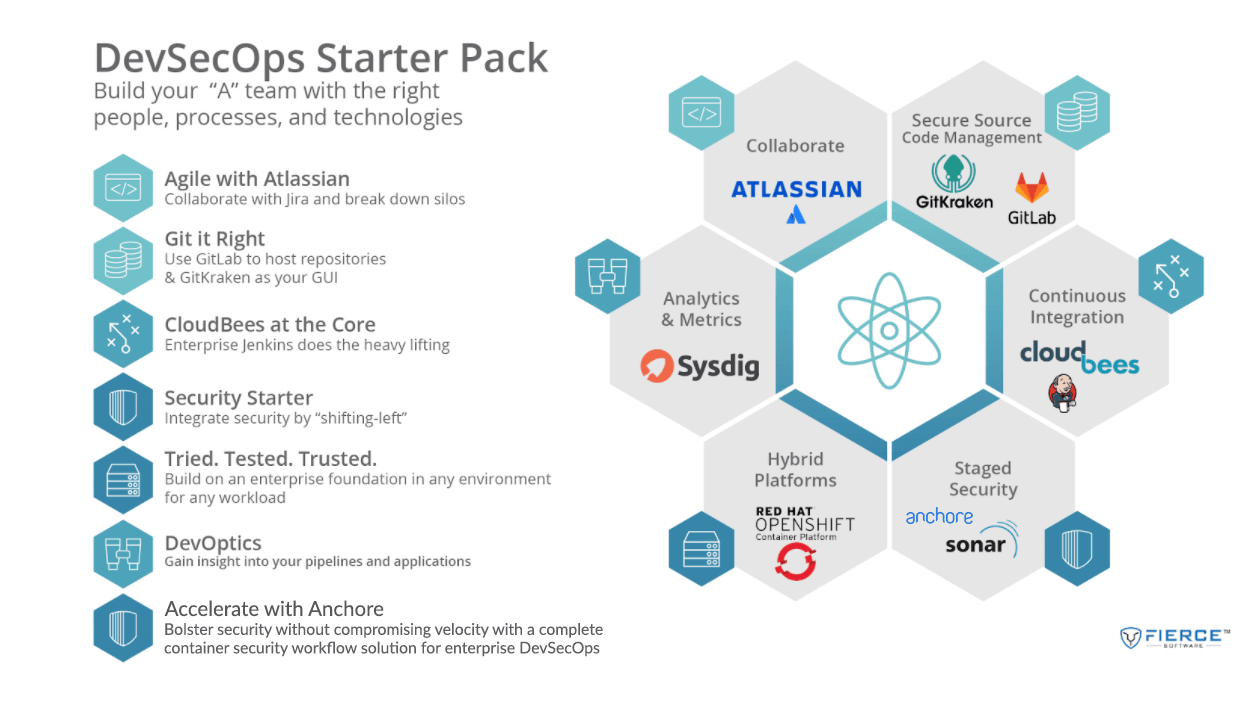
If you’re in the software industry, you’re likely familiar with the term DevOps: an organizational methodology that focuses on encouraging collaboration and optimized production through tools and development standards.
DevOps vs DevSecOps
DevSecOps, while maintaining a dedication to productivity tools and cross-departmental communication, has an enhanced focus on security, and is quickly becoming commonplace for government, military, and large enterprise development teams.
The definition of DevSecOps is explored in this article, DevSecOps for the Public Sector, which highlights expert insights from Thomas Lam, acting director of architecture and engineering, Department of Defense, Office of the CIO:
“DevSecOps describes a culture and practice enabling organizations to bridge the gap between developers, security team, and operations team; improve processes through collaborative and agile workflows; drive for faster and more secure software delivery via technology.”
Adopting DevSecOps
As previously mentioned, DevSecOps is a cultural structure that goes far beyond simply implementing the right tools. Adopting DevSecOps requires an evolution of processes and mindsets and will affect anyone involved in development, including senior leadership responsible for company initiatives and roadmaps.
Above all else, collaboration, communication, and transparency should be prioritized.
Intimidated yet? Never fear. We have the tools you need to successfully implement DevSecOps at your organization with minimal overhead and groundwork. We bring you: the DevSecOps Starter Pack.

DevSecOps Tools
Equipping your team with the right DevOps tools, with security baked in across your toolchain, will make the difference between success and failure. Adopting new tools takes time and money, so selecting the correct ones early on and implementing them thoughtfully will prevent many headaches and unneeded spending.
Collaboration Tools
As is the case with all successful teams, it’s important that everyone is on the same page. Enabling channels of communication between individual team members and departments across your organization will be crucial.
Atlassian fills this need with Jira, Confluence, and Trello, platforms that allow you to track projects and progress, communicate despite distractions, and organize and collaborate in one place.
Similarly, GitKraken Issue Boards provide daily task management and issue tracking, and GitKraken Timelines enables planning and communication of project goals and milestones.
Source Code Management
Just as important as keeping your team on the same page when it comes to daily tasks and project milestones, is properly and securely managing your source code. This is done through version control or source control management. If you’re developing in the 21st century, you’re going to want to use Git for version control.
To accomplish secure source code management, you will need:
- A tool to host your code repositories.
- A graphical user interface, or Git client, to visualize and interact with your codebase.
The GitKraken Git GUI gives your team the ability to easily, quickly, and securely access your hosted code by integrating directly with GitLab.com or GitLab Self-Managed. GitKraken allows developers to collaborate directly through the tool with pull requests for code review and alerts users whenever a conflict occurs, allowing you to minimize risk and avoid delivery delays. This tool simplifies complicated Git commands with intuitive drag-and-drop actions, giving your team the workflow confidence they need to maximize productivity.
Automation Tools
A foundational element of streamlining processes with DevSecOps is implementing automation whenever possible. Jenkins is a master of continuous integration and automation. Manage build environments across departments and let Jenkins do the work with Cloudbees Core and Cloudbees Enterprise Jenkins Support.
Don’t forget Red Hat Ansible Automation Platform, a visual dashboard which grants role-based access and schedule jobs with real-time playbook feedback across multiple geographic deployments.
Security Tools
At its core, the DevSecOps methodology is focused on security, and that means employing security in every step of the workflow. While security may be an afterthought for some development teams, it is built in from the beginning of the software lifecycle and application infrastructure in a DevSecOps structure. Employ continuous inspection with SonarQube to identify common issues and potential vulnerabilities, obtain security metrics, and assess the general health of your codebase.
Container Management
Containers help software run more reliably when moved from one computing environment to another by taking entire runtime environments and curating everything conveniently on one platform. Red Hat OpenShift is a Kubernetes container platform with automated operations to manage cloud deployments.
Container Security Tools
Add an additional layer of security for your development environment with SysDig and gain valuable analytics and DevSecOps security metrics.
Achieve Success with the DevSecOps Starter Pack
If this is the start of your exciting evolution, consider bringing the DevSecOps Starter Pack along to give you the tools and support your team needs to successfully adopt these practices and maximize productivity.
DevSecOps Starter Pack
- Agile with Atlassian
- Git it Right with GitLab and GitKraken
- CloudBees at the Core with Jenkins
- Automate with Ansible
- Security Starter with Sonar
- Tried, Tested, True with Red Hat OpenShift
- DevOptics with SysDig
- Accelerate with Anchore
Fierce Software DevSecOps Team:
Email: devsecops@fiercesw.com
Phone: 1-888-576-1572